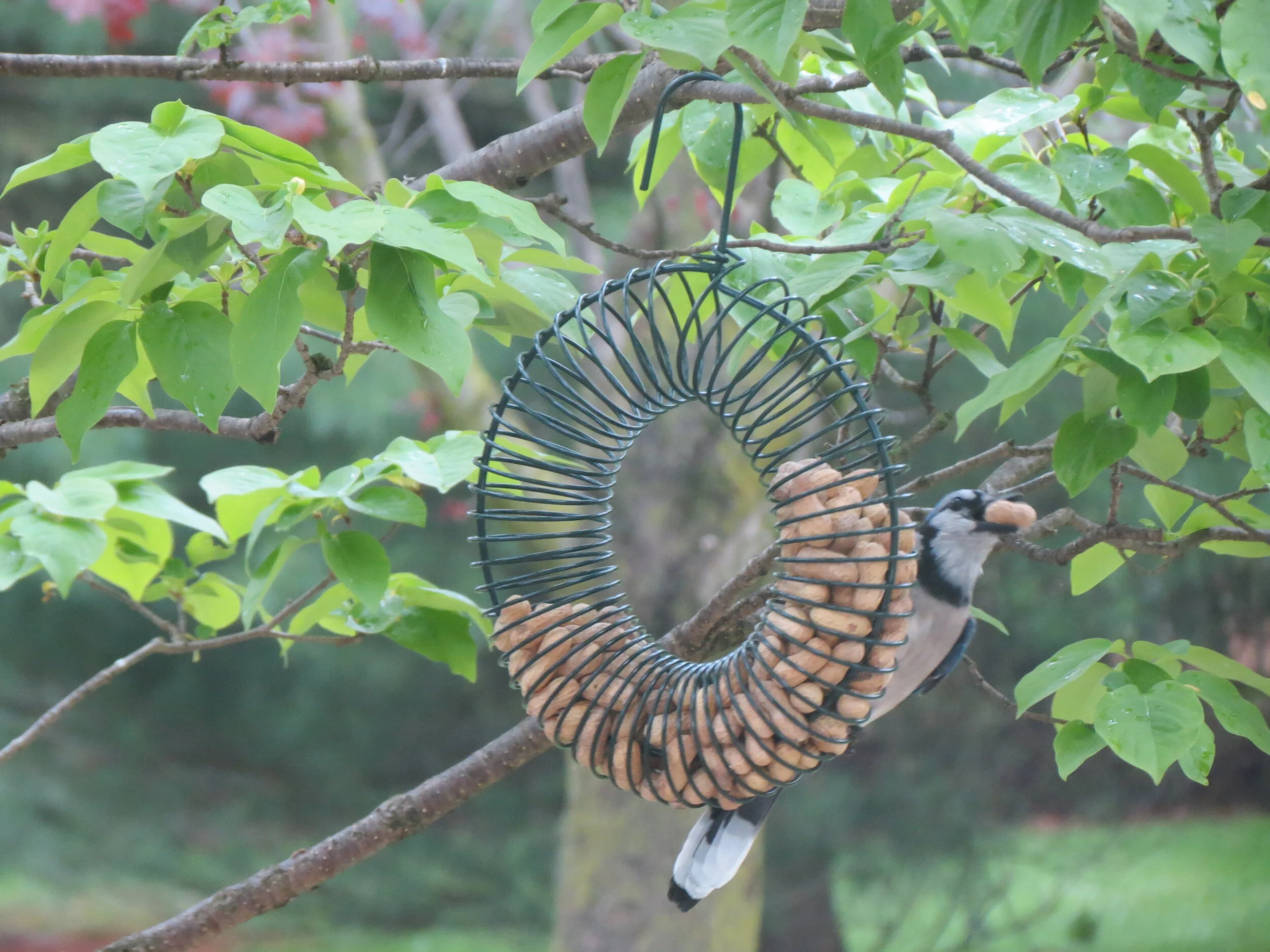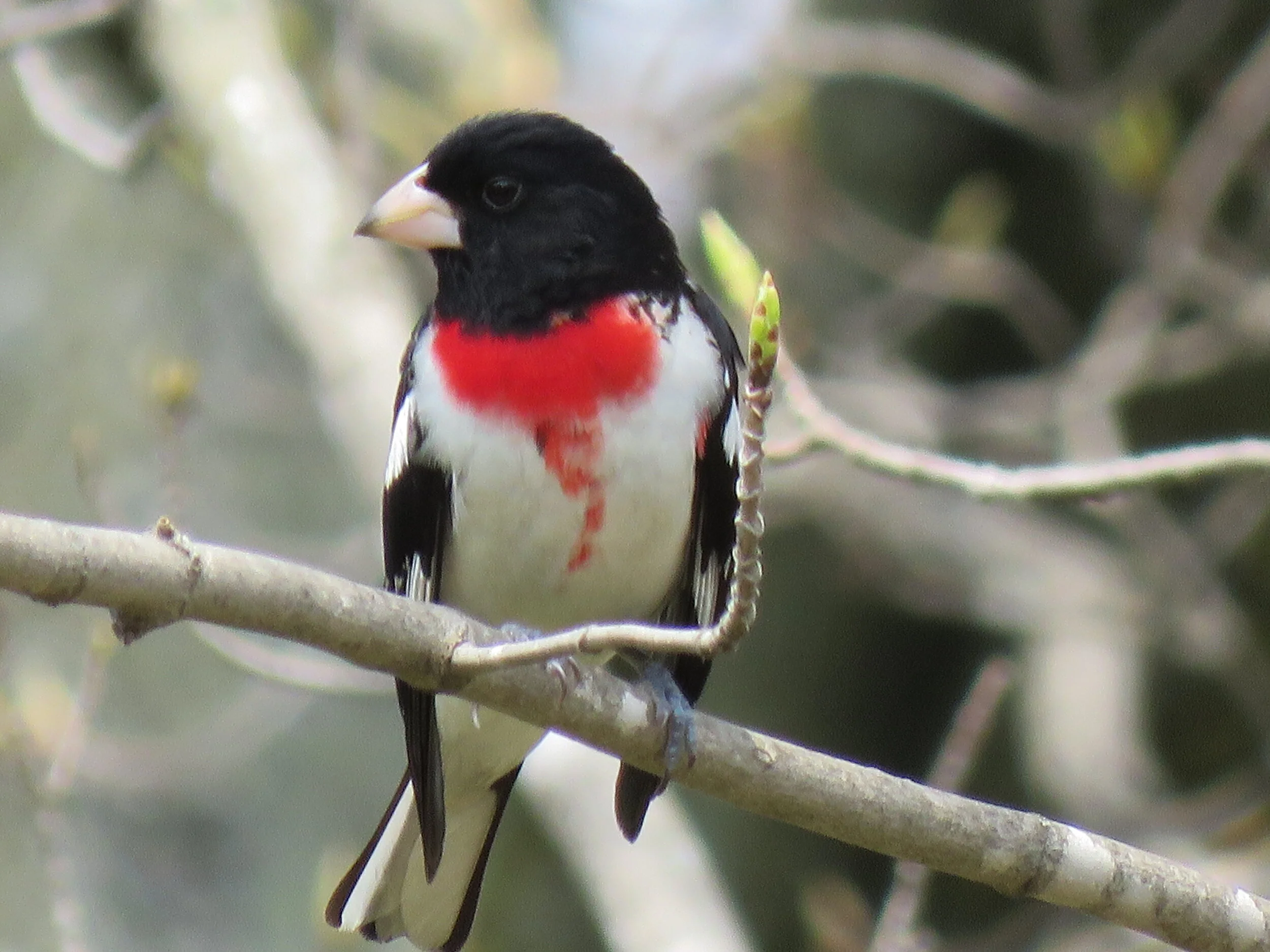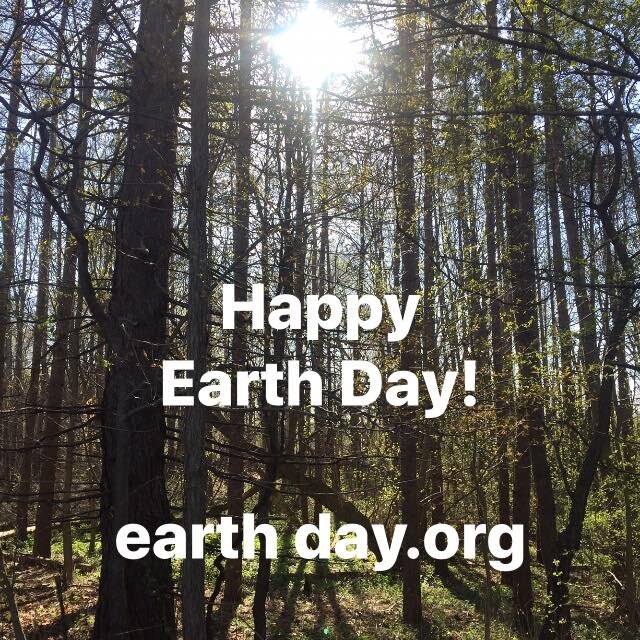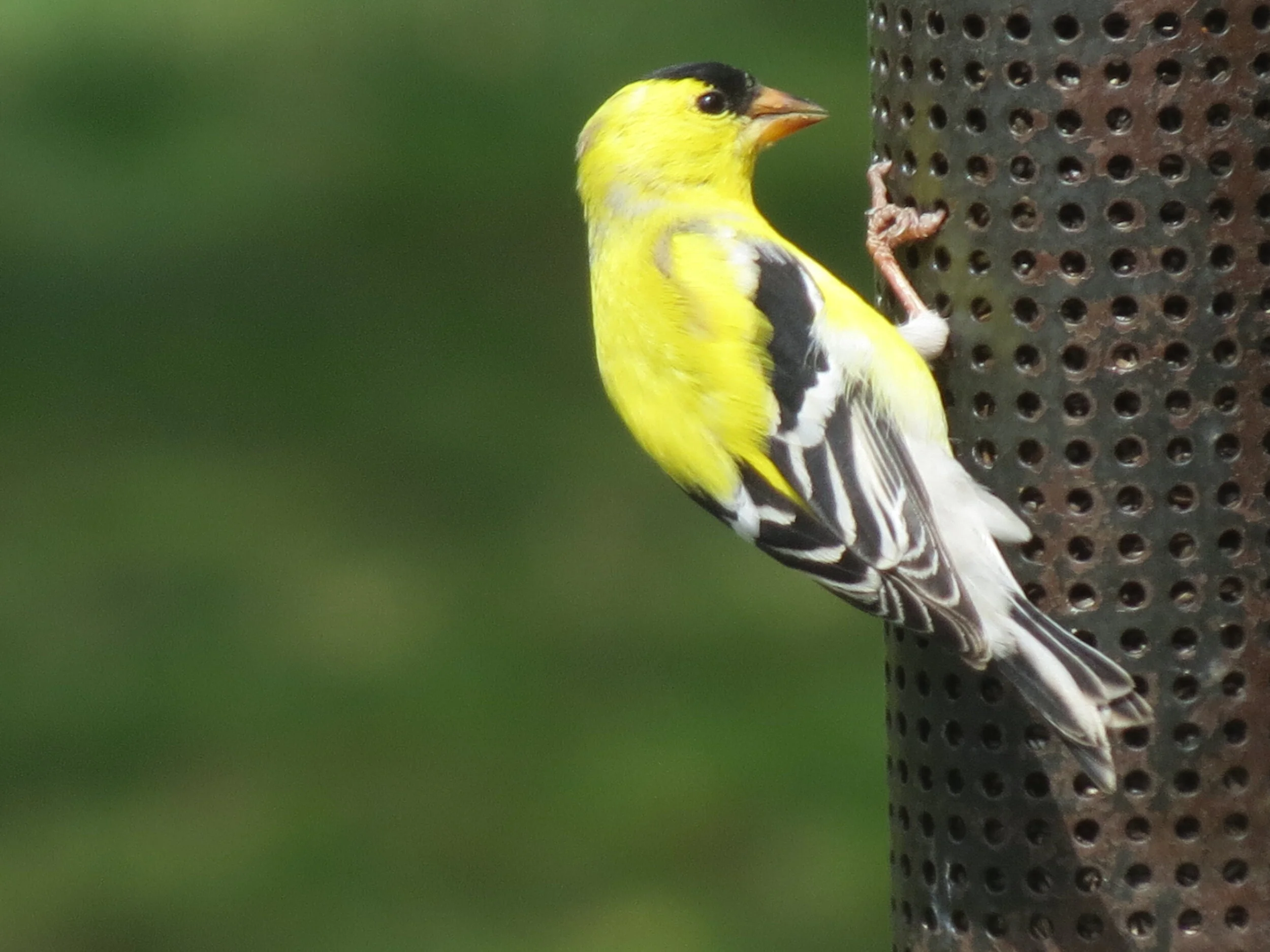With warmer weather soon to be upon us, it is a perfect time to provide some tips for storing your wild bird seed.
In the winter or during colder weather, an unheated , dry space outside of the home is perfect, but remember that you should keep seed in critter-proof containers, if at all possible. It is still best not to purchase too much seed at a time in case feeders become inactive. (Four to six week supply is a good amount during winter.) One should also make sure the seed in your feeders hasn’t become moist from snow, rain or other damp weather conditions. If your feeders aren’t very active at any time during the year, our best advice would be to not totally fill them until you see more birds in your garden. As well, clean feeders often while also purchasing smaller amounts.
Other times of the year can be another story if seed is not stored properly. Since seeds are oil-based (think of sunflower oil, safflower oil, peanut oil, corn oil, etc which can ‘turn’ or deteriorate.), seed should also be kept in the coolest spot possible, also outside of the home. Humidity or any type of moisture, along with heat, are not good for your wild bird seed and, in turn, not good for the birds. To avoid a waste of seed and money, purchase only what your backyard birds might eat over a one or two week period. You never know when a heat wave might hit or when your feeders might become inactive.
By no means should you mix your purchase of fresh seed with seed that you currently have on hand. If you have seed that you feel has become rancid, has what appears to be mold or has an unpleasant smell, discard carefully. If you have plenty of birds around but they aren’t eating the seed, there’s a good chance it has ‘turned’.



















